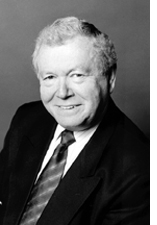By Rabbi Dow Marmur
 JERUSALEM — Two Israeli Arab intellectuals, both graduates of Israeli universities, one an editor the other a writer, were discussing – in Hebrew, of course – on Israeli TV on Saturday night the latter’s new book in which he argues for a re-evaluation of the way in which his people, all Israeli citizens, deal with the Jewish majority in their country.
JERUSALEM — Two Israeli Arab intellectuals, both graduates of Israeli universities, one an editor the other a writer, were discussing – in Hebrew, of course – on Israeli TV on Saturday night the latter’s new book in which he argues for a re-evaluation of the way in which his people, all Israeli citizens, deal with the Jewish majority in their country.
Both agreed that over the years, Jewish Israel had become more beholden to extreme Orthodoxy, witnessed growing intolerance bordering on fascism and seen signs of ever more noticeable racism. But they disagreed about how Arabs should deal with the situation.
The gist of the new book seems to be that the Arabs who constitute some 20% of Israel’s population aren’t well served by the role of victims in which they’ve usually cast themselves. Not that they aren’t greatly disadvantaged but the question is whether stressing this incontrovertible fact without doing much about it other than complaining helps or hinders their cause.
When they see themselves as victims, Israeli Arabs tend not to want to cooperate with Jews, even when Jews, usually on the left, challenge the prevailing mood of intolerance and discrimination. This gives those on the right reason to argue that the Arabs are happy as things are because they know that they’d be worse off in the Palestinian Authority or in any Arab country. Some may even maintain that claiming victimhood legitimates those who see themselves as the fifth column in the land.
By rejecting even those whom Israeli Jews regard as leftist extremists as champions of the cause of the Arab minority, Israeli Arabs are acting against their best interests. The book appears to want to urge Arabs in Israel to engage with like-minded Jews in order to help create a better society from which, by inference, they too will greatly benefit. Instead of colluding with the barriers from without by building barriers from within, Arabs should engage whenever possible in joint activities for the good of all Israel. And, yes, there’re such opportunities in Israel today.
From the experience of Diaspora Jewry it seems reasonable to conclude that the better option for the minority is active participation for the betterment of society as a whole rather than passive rejection of all contacts suffering in silence and self-pity. That was the stance of Jewish liberals from the moment that emancipation became possible. Instead of building ghetto walls from within, liberal Jews were determined to be active partners in society at large.
They were vindicated and succeeded in most countries. Thus both in Britain and in Canada, two countries I know well, Jewish engagement in social action and the participation of individuals and groups in the building of a better society have been beneficial for all concerned. Much of the success of the Jewish communities in these and many other countries – notably the United States – is due to this open and constructive approach which refuses to stay in the ghetto. Anti-Semitism hasn’t disappeared and our duty to fight it in every possible way remains, but that duty now falls no less on the non-Jewish majority than on the Jews.
If the comparison is legitimate and the analysis is correct, Jews in the Diaspora have reason to encourage Arabs in Israel to emulate them.
*
Rabbi Marmur is spiritual leader emeritus of Holy Blossom Temple in Toronto. He now divides his time between Canada and Israel